COVID-19 pandemic and climate change
The COVID-19 (coronavirus) pandemic that spread across the world during 2020 is still having major ramifications for climate change and environmental policies. The Institute has been responding through research, analysis and commentary on the implications for decision-making in the public private and third sectors, particularly in relation to climate change mitigation and adaptation. A key area of investigation is how economic recovery packages from the pandemic can promote strong and sustainable growth and development through zero-carbon and climate-resilient investments. This page provides details of policy analysis and research being carried out by the Institute in relation to COVID-19.
View videos and download presentations from the Royal Economic Society webinar series: A strong and sustainable recovery from COVID-19.
The three seminars are chaired by Nicholas Stern and feature presentations by Nick Robins and Dimitri Zenghelis.

Commentaries and publications
This white paper outlines an action agenda focused on a big push in investment, innovation and financing. Multilateralism remains key to unlocking the response for a new financial, societal and economic architecture. Read more
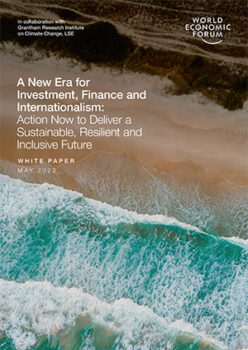
This paper argues that China will have to change the way of development by taking a sustainable pathway to growth but that this new approach does not mean sacrificing economic growth. Read more

This is the first paper to track food insecurity and its determinants during the pandemic using multi-country and multi-wave evidence. Read more

The case for action on climate change with urgency and at scale rests on the immense magnitude of climate risk,... Read more

This paper explores people's willingness to reduce travel consumption in support of the transition to a low-carbon pathway beyond COVID-19, using new survey data from UK car drivers and air travellers. Read more

The COVID-19 pandemic has affected food security across the world. As governments respond in different ways both with regards to... Read more

This report, produced with the World Economic Forum, outlines a global vision and concrete, practical guidance to grow forward from the COVID-19 crisis towards more resilient economies that serve all parts of society and ensure nature and the environment are preserved for future generations. Read more
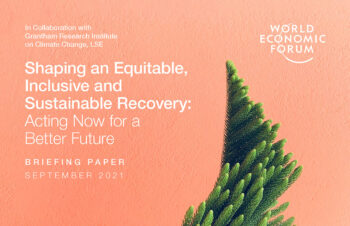
In the lead up to the COP26 in Glasgow this article outlines the challenge of ensuring that countries meet their commitments to the Paris Agreement at a time of economic slowdown triggered by COVID-19. Read more

This paper produced to accompany 'G7 leadership for sustainable, resilient and inclusive economic recovery and growth', covers: how to make 'levelling up' or 'building back better' work better; multilevel finances in recovery and building back better: Germany and the US; and strengthening the role of the European Commission, before drawing some policy lessons for the G7 and for other systemically important countries. Read more

This report sets out core elements of an overarching and integrated strategy for recovery from the COVID-10 pandemic and growth, as a contribution to the preparation for the G7 Summit taking place in Carbis Bay, Cornwall (11 to 13 June 2021). Read more

This independent report prepared for the UK Prime Minister ahead of the G7 Summit in June sets out the current major challenges and opportunities facing the world, a shared vision and strategy for tackling them, policies for delivery and finance for action. Read more

Sabrina Muller and Nick Robins explain how the Social Value framework offers a mechanism to drive a green and just recovery from COVID-19 across the UK. Read more

This paper explains why a sustained, strong and non-inflationary recovery from COVID-19 must be driven by private investment, and sets out priority actions for governments. Read more

Written evidence submitted to the House of Lords COVID-19 Select Committee, outlining opportunities for building back better in the UK with sustainable growth and investment. Read more

This paper focuses on three action areas for China's 14th Five-Year Plan: the energy transition, a new type of sustainable urban development and investment priorities. Read more

Many countries are committed to emerge from COVID 19 on a more sustainable environmental footing. Here we explore what such... Read more

An analysis of patent data to identify areas where the UK has comparative advantage in innovation, and where the economic returns in the UK might be large, highlighting technologies that are relevant for achieving net-zero and dealing with the COVID-19 pandemic. Read more

The world is currently facing two crises of potentially immense proportions: COVID-19 and climate change. The response to both must be global, urgent and on great scale, argue the authors of this paper, as they outline the need for a sustainable recovery, and also the importance of China's role. Read more

A toolbox for central banks and financial supervisors of options to align their COVID-19 crisis response measures with climate and sustainability objectives and mitigate potential sustainability risks, updated with new analysis. Read more
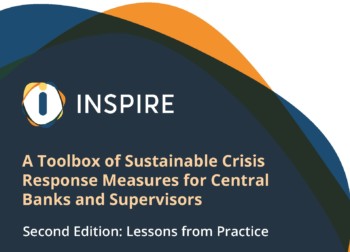
This paper sets out the role for the coordinated development of clean, compact and connected (CCC) cities alongside the restructuring of existing metropolitan areas, and describes the necessary drivers of structural change, in the economic recovery phase in China. Read more

Bob Ward describes how a free market lobby group, the American Institute for Economic Research, who have organised a controversial petition against the use of lockdowns to tackle COVID-19, have used similar methods in the past to spread misinformation about other health and environmental risks, including climate change. Read more

A series of proactive, coordinated, net-zero-emissions-aligned investments that the UK can place at the heart of its plan for recovery from COVID-19. Read more

This paper sets out six key areas, where government investment could create jobs and advance the fight against climate change in the UK. Read more

The UK has a proud tradition of leadership in climate action and global finance. The urgent need to rebuild the... Read more

Examining the relationship between contemporaneous exposure to fine particulate matter and COVID-19 morbidity and mortality, this paper, using US data, finds that fluctuations in local air quality can almost immediately impact the rate of confirmed cases and deaths from the disease. Read more

The authors in this policy insight set out a number of action areas for enabling China’s 14th Plan to embody high-quality development and strong, sustainable, resilient and inclusive growth in the aftermath of the COVID-19 pandemic. Read more

This paper provides a quantitative assessment of the economic and environmental impacts of COVID-19 lockdown measures in the short and long term. Read more

Brazil ended 2019 with virtually the same level of GDP that it had in 2012 and now the COVID-19 pandemic is likely to exert further downward pressure. Leveraging green finance may be the best way to tap more resources from domestic and foreign institutional investors now that sustainable investment is a growing necessity. In fact, the time is ripe for a green decade, argues Mario Mesquita in this post for the Sustainable Finance Leadership series. Read more

This paper aims to estimate the short-run impacts of air travel reductions due to COVID-19, and explores the potential for policy measures to curb demand and reduce carbon dioxide emissions beyond the lifetime of the pandemic with minimal impacts on welfare. Read more
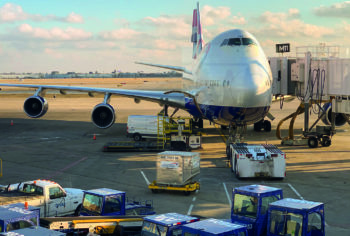
Just as unbridled climate change will do serious damage to the economy and its workers, so too will failure to improve human-capital management and safeguard workers’ wellbeing. That is why both climate action and social protections must be embedded in COVID-19 recovery strategies, argue Naïm Abou-Jaoudé and Nick Robins. Read more
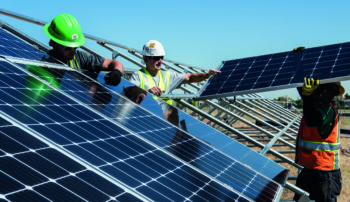
The UK has a unique opportunity to ‘rebuild to last’ after COVID-19 and design an inclusive, resilient and sustainable growth strategy that builds off the Chancellor’s Summer Economic Update, argue James Rydge and Dimitri Zenghelis. Read more

Finance ministers have a unique opportunity to design and implement comprehensive stimulus packages that can drive a strong recovery and build a better future: so argues a new paper prepared at the request of the co-chairs of the Coalition of Finance Ministers for Climate Action and summarised in this commentary. Read more
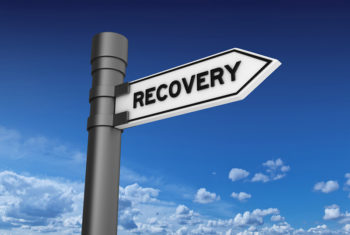
Banks need to show how they are aligning their balance sheets with the UK’s net-zero greenhouse gas emissions target, how they are enabling households and companies to become climate-resilient, and how the transition can be steered so that it is fair and inclusive. This report presents research findings and recommendations for how to achieve these aims. Read more

A new paper draws lessons from COVID-19 for the fight against climate change, arguing that people are willing to change their behaviour as long as there is a clear social mandate. Candice Howarth summarises the analysis. Read more

This paper investigates if narratives varying the cause of the COVID-19 pandemic affects pro-wildlife conservation outcomes. In a pre-registered online... Read more

This paper draws lessons from the COVID-19 crisis for climate change. Read more

This briefing paper sets out the key areas where strong economic policies and institutions will be needed to foster investment for the post-COVID-19 recovery, building on discussions in the Royal Economic Society's webinar series chaired by Professor Lord Stern. Read more
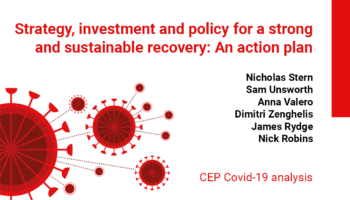
To tackle the challenges of climate change, more investment needs to be mobilised in low-carbon technologies and capital assets. This report examines the implications for firms as they diversify into the green marketplace. Read more
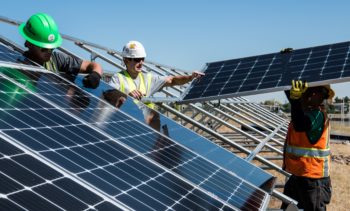
The COVID-19 crisis demonstrates the need to invest much more in pre-disaster risk reduction and preparedness for a range of risks, including climate change and its accompanying hazards such as flooding. But what, asks Swenja Surminski, does this kind of investment need to consider in practice – and why is ‘resilience’ not already widely taken into account when making policy and investment decisions? Read more

Swenja Surminski discusses the impact of climate change on the UK housing sector. In this interview with Future Housing she outlines three major risk categories facing the sector: physical, transition and litigation and liability risk. She also discusses the importance of ensuring that post-COVID-19 recovery measures take account of climate targets. Read more
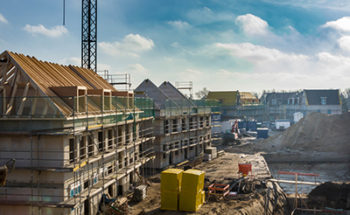
Against the backdrop of the COVID-19 crisis, a trio of sustainable finance innovations could enable emerging economies to overcome sovereign debt problems and support their delivery of the Sustainable Development Goals, write Alexandra Pinzon, Nick Robins and Mike Hugman Read more

There’s an opportunity to build a new social contract, tackle inequality, foster innovation and adopt a long-term industrial strategy, write Sam Unsworth and Anna Valero, discussing some of the issues raised from a recent webinar hosted by the Royal Economic Society on policies for a strong and sustainable recovery from COVID-19. Read more

This brief argues that once the immediate rescue has been secured and countries move towards recovery from COVID-19, carefully implementing carbon pricing while reducing fossil fuel subsidies should be at the core of any stimulus package. Read more

This working paper published by Oxford Smith School of Enterprise and the Environment outlines how the transition to net zero emissions could significantly contribute to the UK’s recovery from COVID-19. Read more

This paper (forthcoming in the Oxford Review of Economic Policy) assesses the economic and climate impact of taking a green route out of the COVID-19 crisis. The analysis is based on a survey 231 central bank officials, finance ministry officials, and other economic experts from G20 countries on the relative performance of 25 major fiscal recovery archetypes across four dimensions: speed of implementation, economic multiplier, climate impact potential, and overall desirability. Read more

Nicholas Stern comments on the recovery from COVID-19, which, he says, must be designed to be sustainable if it is to take us to the drive to the transformational growth that can give us a much better path of development and growth and avoid the dangers of the old system. Read more

This briefing identifies key recovery policies that the UK government could introduce to both respond to the crisis of COVID-19, and support the country in meeting its commitment to reaching net-zero emissions by 2050. Read more

The COVID-19 pandemic has underlined the fragility and dangers of the old growth path. There can be no going back to the old normal, argue Amar Bhattacharya and Nicholas Stern. Read more

Allianz CIO Günther Thallinger and LSE’s Nick Robins on how to “recover better” from the crisis Read more

Transcript of the keynote speech delivered by Nick Robins on 20 April 2020 as part of Earth Day Week, in which he suggests five priorities for how we should reset sustainable finance in the decade to 2030. Read more

The impact of COVID-19 on the price of carbon illustrates just how important it is to build flexibility into cap-and-trade systems and this is something policymakers should remember for the design of the UK’s post-Brexit emissions trading system, argue Josh Burke and Luca Taschini. Read more


